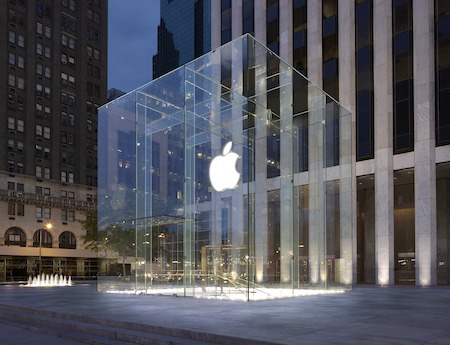Guest Blog: Will Apple TV Finally Fix TV?

The smarter way to stay on top of broadcasting and cable industry. Sign up below
You are now subscribed
Your newsletter sign-up was successful
Apple is rumored to be announcing their new TV platform later this week. And if they do, they’ll be competing in an increasingly crowded field of companies racing to deliver video services. Everyone from Sony to HBO to Sling TV has launched a video streaming service or has one in the works. So what will make Apple TV different? What will be its killer app?
I think it’s going to be universal search.
Apple has always driven content providers nuts with its iTunes distribution model: it takes 30% of the revenue, but more importantly, all of the subscriber data, which is worth its weight in gold.
But lately Cupertino has been acting much more conciliatory. In return for handling their own streaming infrastructure costs, Apple has been offering to share its usage and demographic details with its content partners.
What could explain this surprisingly reasonable behavior on the part of Apple?
Apple TV wants to give its viewers something special - the ability to deep search across the entire bundle.
Think about how it works today. When I click on an Apple TV app, it’s the HBO experience, or ESPN experience.
The smarter way to stay on top of broadcasting and cable industry. Sign up below
Right now that’s fine for Apple. It gives these content owners lots of incentive to make these experiences great. They also have lots of incentive to sell related products, even with the 30% Apple tax.
Meanwhile Apple has no development costs, a fat percentage of the revenue, and as mentioned, exclusive access to the subscriber data. But this makes finding great content a pain. Users have to navigate into an app, and search within an app. Everything is siloed.
Instead, what if Apple creates a personal Google search bar for TV? One that lets viewers find immediate relevant content (“I feel like watching an action film.”) while also being conducive to casual browsing.
But while all this sounds great for Apple, is the rest of the industry paying attention? What will the hundreds of video content providers (formerly known as cable companies and television networks) do to compete?
The first thing the cable companies need to do is figure out how to build relationships around IP apps that are replacing proprietary video infrastructure. The second thing they need to do is embrace digital data about their subscribers and users. Focusing on relationships and data in the form of personal IDs, transaction history and usage preferences is the cornerstone to Apple’s personal content strategy, for a very good reason. The “500 channels of filler” model is done.
If cable companies can get relationship and data functionality in place, they will start to be able to effectively compete with Apple by offering new dynamic, IP-based services (video, home automation, home health, IOT, connected car and more), with open data sharing and personalize subscriber ID. But right now cable’s legacy BSS and commerce services are not built to support these new, modern, IP-based business offerings.
Existing cable billing and monetization systems cannot provision external IP services, handle dynamic bundles, support flexible pricing and packaging plans, or measure digital engagement across devices. Cable companies must begin to think of themselves as an aggregator and reseller of IP services - completely reinventing their monetization and BSS stack to empower these new relationship and data centric IP services.
A few inventive cable companies are already moving ahead. Rogers currently has the infrastructure in place to offer a variety of OTT services. Similarly, Cablevision recently announced it will soon resell HBO and CBS apps to its broadband customers.
I think every cable company will eventually follow suit, but the gateway to success will first be to establish a new, flexible, relationship centric commerce platform that sits squarely underneath these new IP apps and services. Once cable companies do this and embrace relationships and data as part of their new BSS platform, only then will they be ready to take the next step of aggregating data from across different outside apps and services to deliver the killer app -- universal search.
Apple sees the light. Roku, Google and Amazon are not far behind. The cable and telecom companies need to shift and put relationships and data front and center on the screen, instead of a grid of apps.
